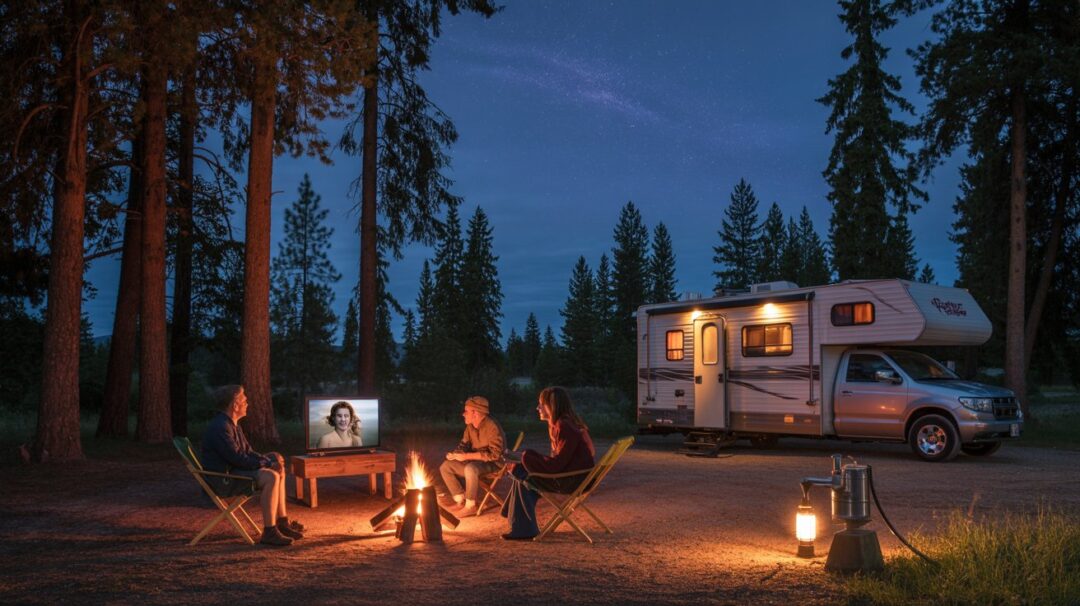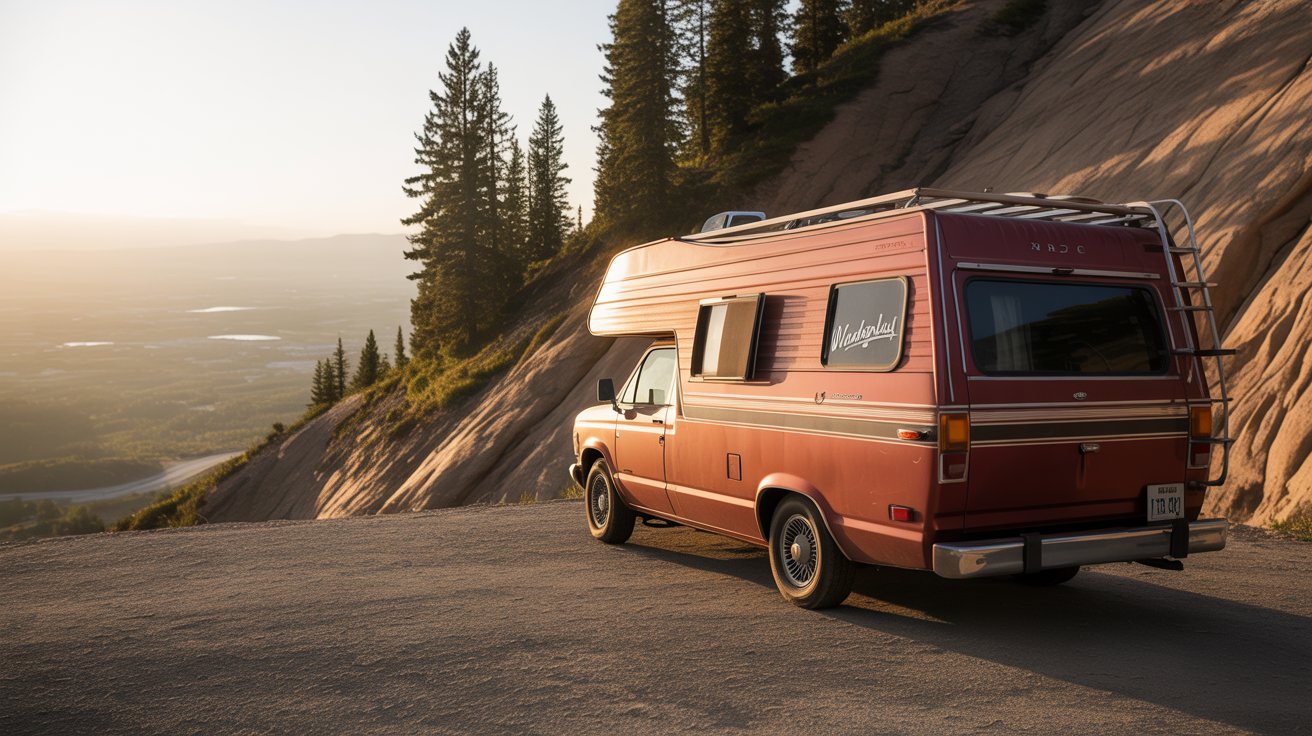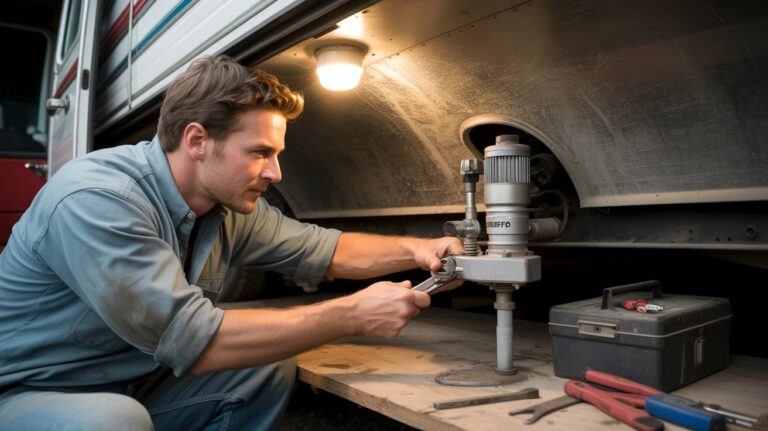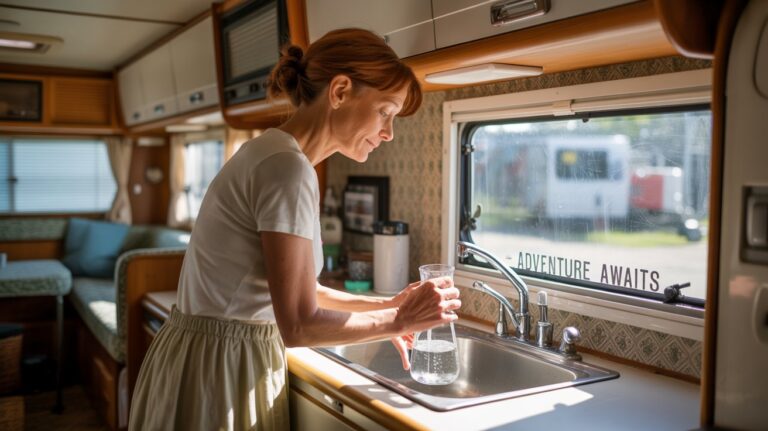Understanding How Long an RV Water Pump Should Last
Have you ever wondered how long an RV water pump should last? If so, you’re not alone. Many RV owners share this concern because a water pump is a critical component of your RV’s water system. It plays a vital role in ensuring that you have the water access you need while enjoying life on the road. Understanding the lifespan of your water pump can help you maintain it better and replace it when necessary.

What is an RV Water Pump?
An RV water pump is essentially a small yet powerful device that supplies water from your RV’s fresh water tank to your faucets, showers, and toilets. It often uses a diaphragm mechanism to create pressure, pumping water through your RV’s plumbing system.
Having a reliable water pump ensures that you can enjoy amenities such as cooking, cleaning, and showering comfortably, just as you would in a traditional home.
Typical Lifespan of an RV Water Pump
So, how long should you expect your RV water pump to last? On average, you can expect RV water pumps to have a lifespan of around 4 to 7 years. Several factors can influence this lifespan, and being aware of them can help you extend your pump’s life.
Factors Affecting the Lifespan
Quality of the Pump
Not all RV water pumps are created equal. Some brands and models are engineered to last longer due to better materials and manufacturing processes. When investing in a water pump, consider purchasing from reputable brands known for durability.
Usage Frequency
The more frequently you use your RV water pump, the shorter its lifespan may be. If you’re living full-time in your RV or often using water, it’s recommended to keep an eye on your pump’s performance.
Maintenance Routine
Just like any appliance, regular maintenance can contribute significantly to the longevity of your RV water pump. Taking care of minor issues early can prevent them from turning into major problems later on.
Water Quality
The quality of the water you use can also affect your pump’s lifespan. If you frequently use water that contains sediment or chemicals, it could cause wear and tear on the pump.
Signs Your RV Water Pump Might Be Failing
It’s vital to recognize the signs of a failing water pump so you can address issues before they escalate. Here are some common indicators:
Unusual Noises
If your water pump is making strange noises, such as grinding or knocking, it could be a sign of mechanical issues.
Reduced Water Pressure
If you notice a significant drop in water pressure at your faucets or shower heads, this may indicate that the pump is struggling to function properly.
Frequent Cycling
Is your water pump turning on and off more often than usual? This phenomenon, known as “short cycling,” might suggest a malfunction or an issue with the pressure switch.
Continuous Run
If your water pump runs continuously without stopping, it may be time to investigate. This could indicate a leak in your plumbing system or a defect in the pump.
DIY Maintenance Tips
Performing a few simple maintenance tasks can go a long way in ensuring the longevity of your RV water pump. Here are some tips you might find helpful:
Regular Inspections
Make a habit of inspecting your water pump regularly. Look for any signs of wear and tear, such as cracks in the housing or loose connections.
Cleaning the Filter
Many RV water pumps come with filters designed to catch debris. Regularly cleaning or replacing this filter can help prevent clogs and maintain optimal performance.
Check for Leaks
Periodically check the area around your pump for any signs of leaks. Early detection of a leak can save you from more costly repairs down the line.
Winterizing
If you won’t be using your RV during the winter months, make sure to winterize your water system properly. This process can help prevent damage that might otherwise lead to your pump wearing out prematurely.
Common RV Water Pump Brands and Their Lifespans
Knowing which brands tend to last longer can help you make informed decisions about replacements or repairs. Here’s a brief overview of some popular RV water pump brands and their expected lifespans:
| Brand | Lifespan (Years) |
|---|---|
| Shurflo | 4-7 |
| Flojet | 4-6 |
| Truma | 5-10 |
| Atwood | 4-6 |
| Aquajet | 5-8 |
Choosing the Right Water Pump for Your RV
Selecting the right water pump can be crucial for your RV experience. Here are a few factors to consider when making your choice:
Flow Rate
Water pumps come with various flow rates, typically measured in gallons per minute (GPM). The flow rate you need depends on your intended water usage. A pump with a flow rate of around 3-5 GPM is generally sufficient for most RVs.
Pressure Rating
You should also consider the pressure rating of your water pump, usually measured in pounds per square inch (PSI). Most RV systems operate at around 40-60 PSI, so look for a pump that meets this requirement.
Noise Level
Some pumps can be quite loud, which might be annoying in a small space like an RV. Check for reviews regarding the noise level of the pump you’re considering.
Installation Tips for Your RV Water Pump
If you decide to replace your water pump yourself, here are some tips to keep in mind:
Gather Necessary Tools
Before starting your installation, gather all necessary tools, such as wrenches, screwdrivers, electrical tape, and perhaps a multimeter for electrical checks.
Disconnect Power Supply
Before you begin working, ensure that the power supply to the water pump is disconnected. Safety should always be your number one priority.
Remove the Old Pump
Carefully disconnect the old pump from the plumping and electrical connections. Avoid damaging any fittings or hoses during the removal process.
Install the New Pump
Follow the manufacturer’s instructions closely when installing the new water pump. Ensure that all hoses and electrical connections are secure.
Test the System
Once you’ve installed the new pump, reconnect the power supply and test the system. Check for leaks and ensure that the pump operates efficiently.
When to Consider Professional Help
While some RV maintenance tasks are doable as a DIY project, there are times when it’s best to consult a professional. Here are some scenarios when you might want to seek help:
Electrical Issues
If you experience any electrical problems with your water pump, it may be wise to consult a qualified technician, as working with electrical systems can be complex and often risky.
Major Repairs
If you’ve identified significant issues, such as a completely non-functioning pump or extensive leaks, professional assistance can ensure it’s resolved properly and safely.
Cost of RV Water Pumps
Understanding the costs associated with RV water pumps can help you budget better for repairs or replacements.
Purchase Price
Typically, you can expect to pay anywhere from $50 to $250 for a new RV water pump, depending on the brand and features.
Installation Fees
If you choose to hire a professional, installation fees can range from $100 to $300, including labor and parts, but this might vary based on your location and the complexity of the job.
Warranty and Support
Most reputable water pump manufacturers offer warranties on their products. Be sure to check the warranty period and its terms when making a purchase. This can provide peace of mind and protect your investment.

Conclusion
Understanding how long an RV water pump should last and the factors that influence its lifespan can significantly enhance your overall RV experience. Regular maintenance, careful monitoring, and timely replacements can ensure that you keep the water flowing freely in your home on wheels. Whether you decide to tackle installation and repairs yourself or seek professional help, knowledge and preparation will serve you well on your RV adventures.
As you embark on your next journey, keep your water system in mind, and enjoy the adventure of traveling with all the comforts of home!







